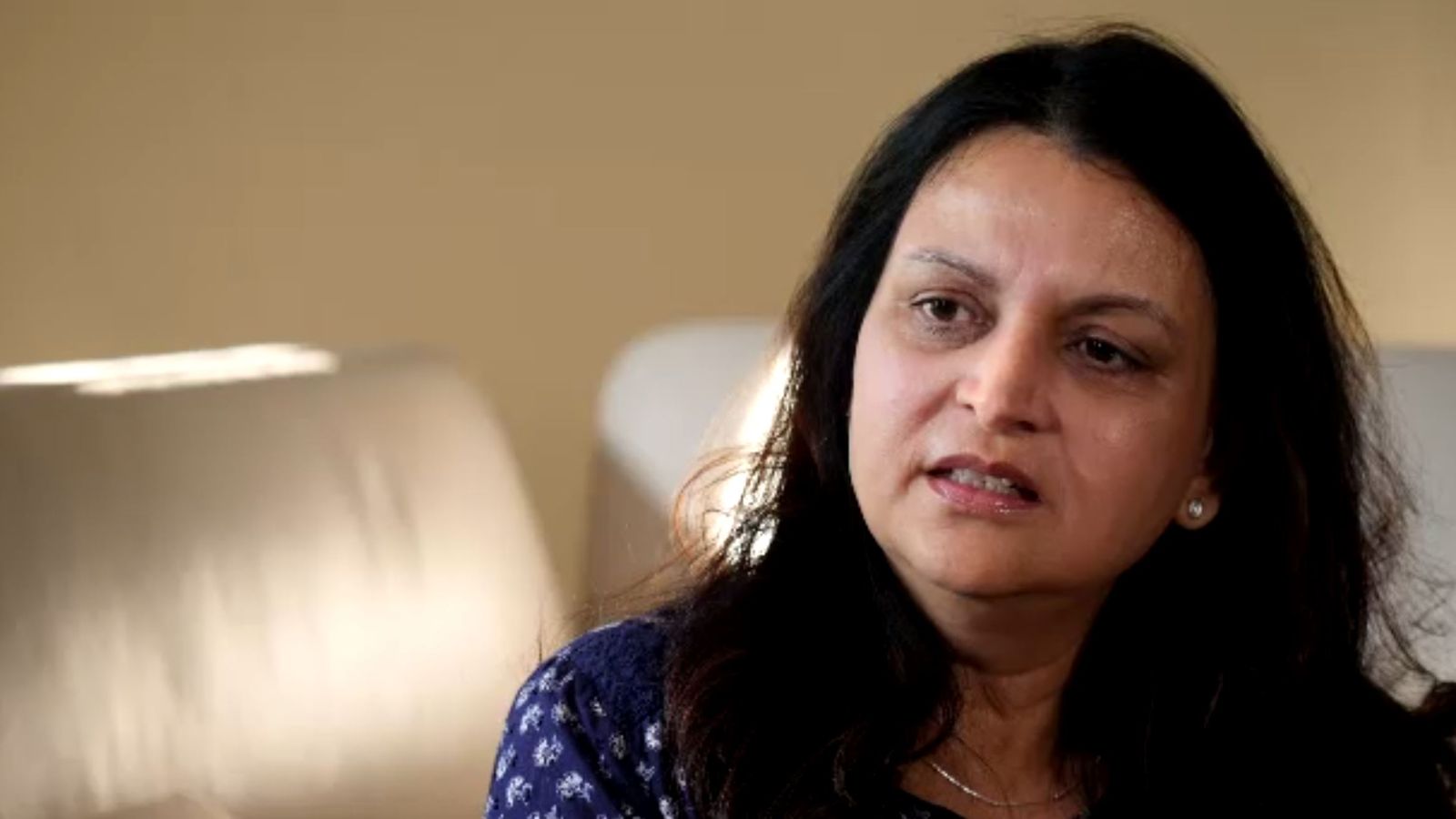Kanan Patel still wears a golden wedding band. I can see it as she holds her mobile to read out a text message from her husband Jayesh.
“Things not improving on O2. Need to try something different.”
She texted back: “I’ve spoken to the Dr. Jayesh keep fighting, don’t let this virus defeat you. We all love you and need you.”
This was the last time Kanan swapped messages with Jayesh. When he sent it he was lying in a hospital bed fighting to breathe. Days later he was intubated, but the doctors could not save him from COVID.
“He was the youngest on the ward,” Kanan tells me.
At just 52 Jayesh was not in the most at-risk groups. But as a community pharmacist working in spring 2020 as the pandemic was beginning to sweep across the world, Jayesh was left exposed and vulnerable without any protection.
I first came to see Kanan in July 2020, three months after her husband’s death. She and her two young daughters, Ria and Kira, were offering prayers during a solemn Hindu ceremony in their kitchen.
She described then, choking back tears, the last time she saw Jayesh: “He walked towards the ambulance in his slippers, I didn’t know he was never going to come back.”
And with those words Kanan broke down.
Grief internalised as COVID-19 Inquiry resumes
There are no tears today. Kanan’s grief is internalised. She struggles, as do her daughters, on special occasions like birthdays and anniversaries.
Today, Valentine’s Day, is especially hard. It is also the day when the COVID-19 Inquiry resumes. Kanan is watching online but the stream is experiencing technical issues.
Kanan feels the public inquiry into the pandemic might be the only chance of the government being held to account. She blames it for failing to protect her husband, that and its “chaotic” messaging.
“All the errors and, you know, all the mistakes which delayed providing the PPE and giving clear guidance to people. There’s a lot, there’s a long list. It all came in dribs and drabs, one guideline today and then tomorrow you hear that it’s something else,” she says.
Lobby believes his father would still be alive if guidance reflected all Britons, not just white ones
Kanan’s frustration is shared by Lobby Akinnola.
I arranged to meet him at the National COVID Memorial on the River Thames near Waterloo, just across the water from the Houses of Parliament.
As we walk along the wall looking at the fresh roses and cards left by bereaved family members he stops and points to a blank heart on the wall.
“This is my dad’s heart, it’s faded now,” he says.
The letters may be fading but Lobby’s pain is not.
His father Olufemi was found dead on the floor of the family’s home in April 2020. Lobby believes his father would still be alive if NHS 111 guidance had reflected all Britons, not just white ones.
‘Race played a part in the death of my father’
“I personally believe race played a part in the death of my father, there’s always the lingering question of ‘if he were white would he be here’ – and it’s things like when trying to diagnose the symptoms of COVID, asking questions like ‘are your lips blue,’ that’s a red flag, immediate, ambulance 999, blue light your way there, but that question doesn’t apply to people like me and my dad,” Lobby says describing his conversation with a 111 call handler.
“So could his life have been saved if we’d thought ahead, and had the forethought and preparedness to consider how these symptoms are going to show up on black skin.”
Lobby is clear about his demands from the inquiry: “I want justice and change. There are many decisions that were made in that building across from us now, that resulted in all of these hearts we see on this wall.”
Sky News has contacted NHS England for comment. In a previous statement regarding the 111 service, they said: “GPs, nurses, paramedics and other health service staff working in the 111 phone and online service have played a key role in helping millions of people get the right care and advice – whether for coronavirus or any other urgent medical needs.”
Be the first to get Breaking News
Install the Sky News app for free
Bereaved families struggling to be heard
Today’s online preliminary hearings suffered some technical problems resulting in a loss of audio.
Bereaved families say they are struggling to be heard too, they can only share their stories via an online form leaving people like Lobby and Kanan feeling sidelined.
As we walk back along the wall, more flowers and Valentine’s cards are being left. It’s clear that the loss of a loved one to COVID was felt more acutely today.
This grief will only be made more bearable when so many important questions are finally answered.








